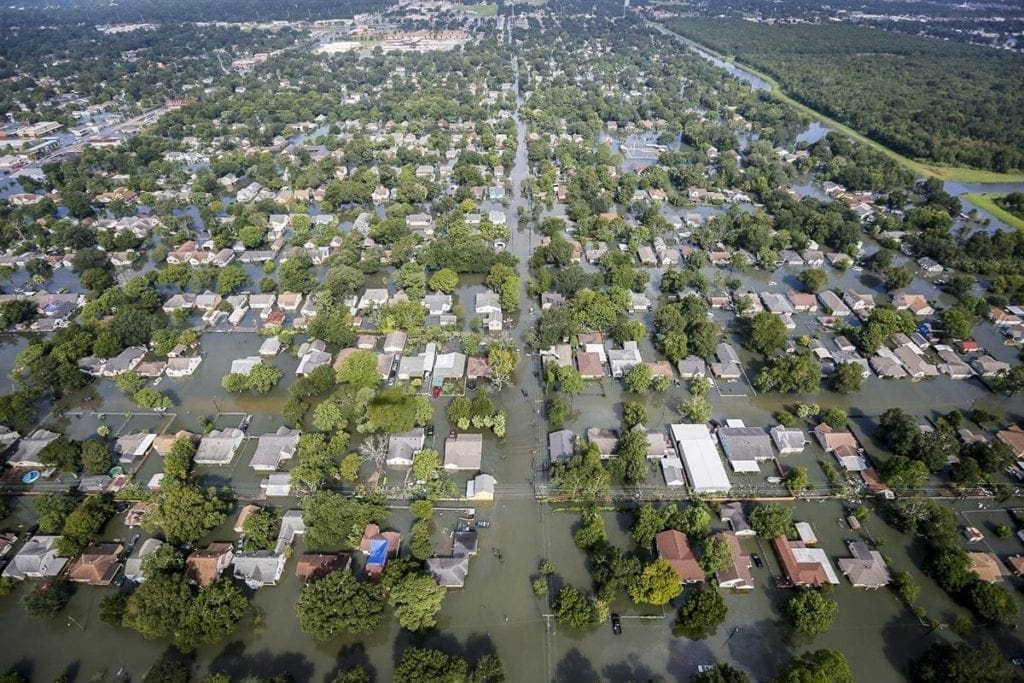Whenever a major natural disaster like Hurricane Harvey hits the United States, many of us often wonder why is it that so many people still live in areas that are at risk of being greatly impacted. After all, why would people continue to build homes and buildings in areas that are more likely to be hit by a hurricane than others?
As you can imagine, the answer lies with the government.

As Politico reports that the powerful home builders’ lobby was successful in killing new legislation that would have brought government-backed insurance coverage for new constructions in high-risk areas to an end prior to Harvey, it fails to explain why we have a National Flood Insurance Program in the first place. It also seems to ignore that the very existence of government-backed insurance is what created the problems we are experiencing now in Texas.
In 1968, when the NFIP was created, the program was sold as an answer to the high costs of federal disaster assistance.
But this issue could have easily been addressed if disaster relief had been allowed to be provided mainly by charities and local governments, just as it used to all across the country up to 1917.
Instead of scaling the federal government’s involvement down and giving the taxpayer a well-earned break, politicians decided to go the other way, making sure that new construction plans for risk areas would only be put into action if they were covered by the insurance program first.
But as the always insightful James Bovard wrote in 2006, the only thing this bloated U.S. government program achieved was to serve as a perverse incentive that pushed more and more companies to build in “river flood plains and coastal areas long favored by hurricanes.”
In an old ad showcasing NFIP to average Americans, FEMA told viewers then they couldn’t “replace your memories,” but they would “help you build new ones.” Instead, Bovard wrote, all that FEMA and the NFIP did was to “[induce] people to build homes in areas where their memories get swept away.”
Still, many alerted both Americans and the federal government that the program was nothing but a sham.
In 1997, a report by Idaho Statesman revealed that NFIP “[brought] more people into harm’s way” by making dangerous development “look not only possible, but attractive.”
Scott Faber, the former Senior Director for Public Policy for American Rivers and current Vice President of Government Affairs at the Environmental Working Group, once said that the NFIP had essentially become a tool in the hands of powerful construction overlords against the environment.
“Prior to the 1960s, you didn’t have much development in flood-prone areas because you couldn’t find any insurer crazy enough to underwrite it,” Faber told Bovard. “But the federal government came along and said it is okay — we are going to make it financially possible for you to live in a flood plain. The effect of this has been much more dramatic in coastal areas, where we have seen a huge boom in coastal development in the last 30 years.”
Thanks to government’s involvement, we now have many more damaged properties, people being displaced, and some even being killed thanks to floods than if insurance hadn’t been subsidized by the taxpayer. And we have nobody but government to thank for it.
So when time to rebuild comes and people call for more federal government involvement, how about reminding our fellow Americans why Hurricane Harvey had such great impact in Houston, Texas, in the first place?

























